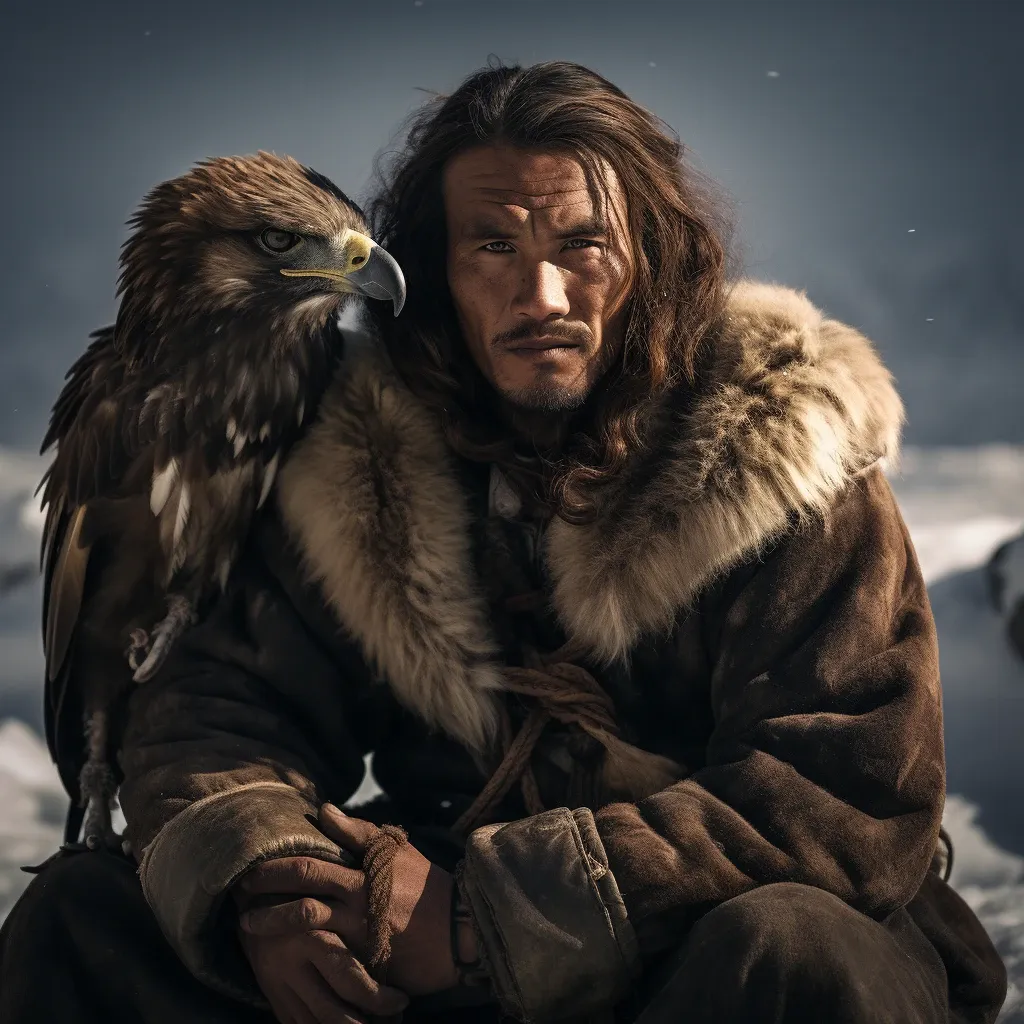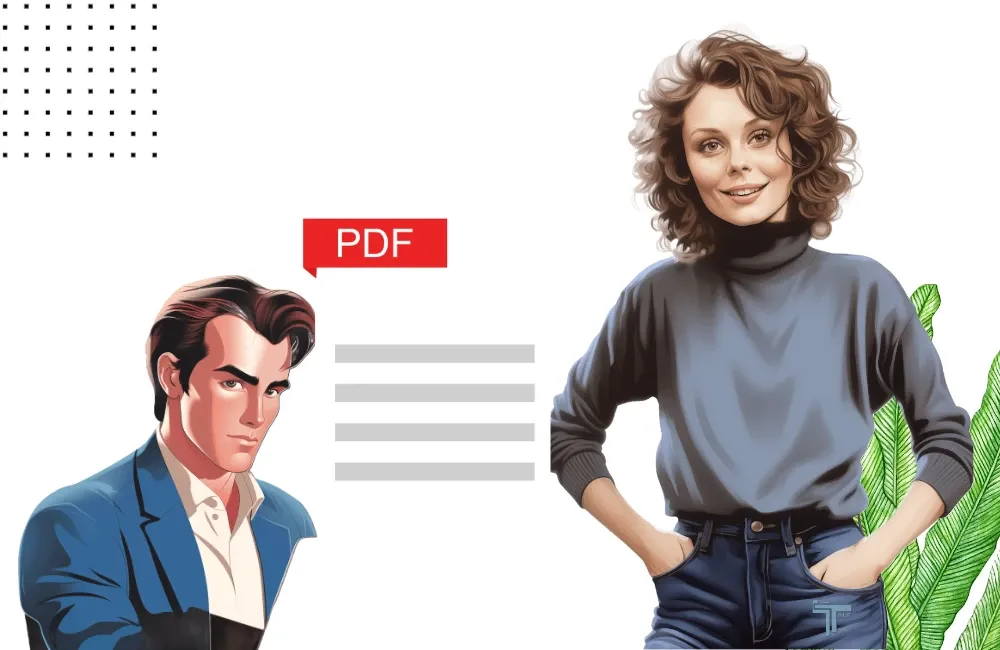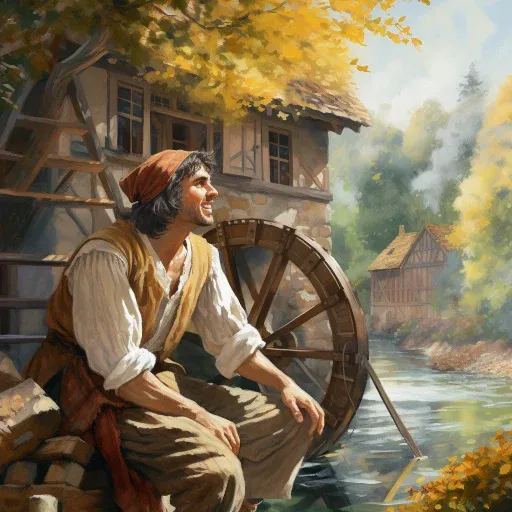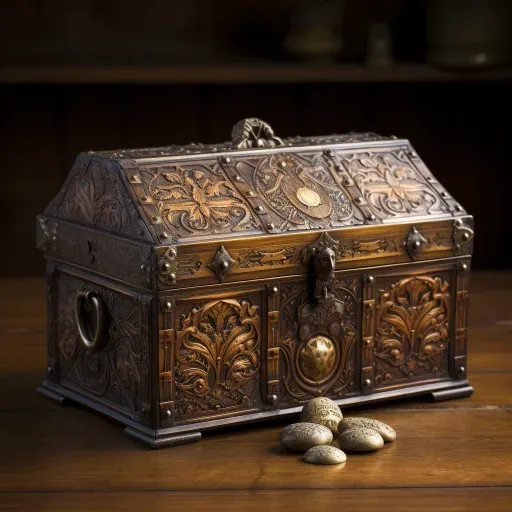BY JAMES BALDWIN
The King and His Hawk
Famous Stories Retold: Story 38 of 50

Heading

Genghis Khan: The story involves Genghis Khan, the great Mongol conqueror, and his pet hawk.
Regret: The story teaches the lesson of temperance and the dangers of acting in anger.
A good book we like, we explorers. That is our best amusement, and our best time killer
- Roald Amundsen, Explorer
The King, His Hawk, and Anger: Lessons from Genghis Khan
Embarking on a journey across the annals of history, we delve into the life of the legendary warrior, Genghis Khan. His tale of valor, conquest, and wisdom is a beacon for many. Yet, a lesser-known story of the King and His Hawk reveals a profound lesson on the price of anger. An unexpected twist awaits in this tale, illuminating a path to wisdom through an unlikely source. Prepare to witness a historical narrative that uncovers the perils of uncontrolled fury, and how it cost a great king his beloved companion.
Genghis Khan: The Great King and Warrior
Genghis Khan, a name that resounds with power and conquest, was one of the greatest kings and warriors in history. His military prowess was unmatched, leading his army into China and Persia, conquering many lands, and etching his name into the annals of history. The tales of his daring deeds were told far and wide, with many comparing him to Alexander the Great. Whether he was home or at war, Genghis Khan was a leader who commanded respect and admiration.
The Royal Hunting Party: A Day of Sport
In the peaceful interlude between his wars, Genghis Khan indulged in his love for hunting. Surrounded by friends and accompanied by his faithful hawk, the king would joyously ride into the woods, his laughter and shouts echoing amongst the trees. These hunting trips weren't merely for sport; they served as a testament to his masterful skills and strategic mind, which were just as sharp in the hunt as they were on the battlefield.
Podcast
The Thirsty King and His Faithful Hawk
One such hunting trip led the king to a secluded valley between two mountains. The day was warm, and thirst took hold of the king. His only companion was his favourite hawk, trained to hunt and loyal to a fault. Despite the absence of his hunting party, Genghis Khan pressed on, driven by his thirst. His faith in his hawk was steadfast, believing it would find its way home. However, what transpired next was an unexpected turn of events that held a powerful lesson for the great king.
The Persistent Hawk: A Symbol of Frustration or Warning?
As the narrative unfolds, Genghis Khan, desperate in his thirst, continually attempts to collect water in his silver cup. Yet, his pet hawk repeatedly interrupts this process, knocking the cup from his hands before he could drink. The repeated interference of the hawk could be perceived as a mere frustration, an obstacle in the king's quest for quenching his thirst. But, in hindsight, the hawk's persistence takes on a different tone – one of a warning.
The hawk, a trained hunting companion of the king, demonstrates an unusual behaviour, acting contrary to its master's immediate desires. Despite the king's growing anger at what he perceives as a betrayal, the hawk remains undeterred, risking its life to prevent its master from drinking the water. Here, we see the hawk as not just a pet or a hunting tool, but as a guardian, warning its master of an unseen danger.

A Deadly Discovery: The Poisonous Snake in the Pool
The truth of the hawk's actions only becomes clear when Genghis Khan finally reaches the water source. What should have been a simple pool of life-giving water was, in reality, the final resting place of a deadly, poisonous snake. The implications are immediate and chilling. Had the king drunk the water he had so desperately sought, he would have ingested the lethal venom of the snake, leading to his untimely demise.
The king's earlier frustration is replaced with a deep sense of horror as he realizes the fatal consequence he just escaped. His faithful hawk, in its persistent interruptions, had been trying to protect him from this unseen threat. The bird's actions were not born out of disobedience, but rather, an instinct to preserve its master's life.
The Price of Anger: The King's Regret and Learned Lesson
In his anger and frustration, the king had lashed out at the only creature attempting to save him. He had killed his hawk, his loyal companion, without understanding the reasons behind its actions. The price of his anger was steep – the life of his trusted companion.
The realization of his mistake fills Genghis Khan with deep regret. He has learned a devastating lesson about the consequences of acting in anger. Moreover, he learns the value of patience, understanding, and the profound bond between him and his hawk. Genghis Khan’s story serves as a timeless reminder of the importance of self-control and the dangers of acting on impulse.
Conclusion
In the tragic tale of Genghis Khan and his hawk, we are reminded of the steep cost of uncontrolled anger - a lesson etched in the annals of history. The hawk, symbolic of unheeded warning, met its end by the very hand it sought to protect. Yet, in its demise, it revealed the lurking danger, a deadly snake, thus saving the king from a tragic fate. The king’s regret, borne from his hasty actions, serves as a stark reminder to exercise patience and restraint in our dealings. History, in its silent wisdom, imparts this lesson through the poignant tale of a king and his hawk.





